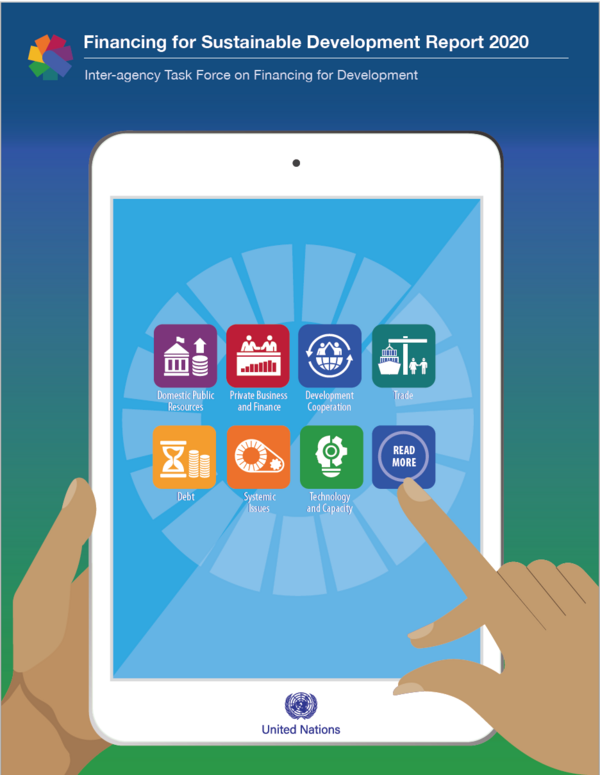- Share this article
- Subscribe to our newsletter
2020 Financing for Sustainable Development
Governments must take immediate steps to prevent a potentially devastating debt crisis and address the economic and financial havoc wrought by the COVID-19 pandemic, according to the 2020 Financing for Sustainable Development Report published by the United Nations-led Inter-Agency Task Force on Financing for Development in April 2020.
The report outlines measures to address the impact of the unfolding global recession and financial turmoil, especially in the world’s poorest countries. Its recommendations are based on joint research and analysis from the UN System, the International Monetary Fund, the World Bank Group, and more than 60 UN agencies and international institutions.
Due to the COVID-19 crisis, global financial markets have witnessed heavy losses and intense volatility over the last month. Investors have moved around USD 90 billion out of emerging markets - the largest outflow ever recorded.
Particularly alarming is the prospect of a new debt crisis, compounded by tumbling prices for oil and other key commodities. Many Least Developed Countries (LDCs) were already at high risk of debt distress – and the fall-out from the current crisis could significantly increase the number.
The 2020 Financing for Sustainable Development Report calls for the following urgent actions:
- Prevent a debt crisis by immediately suspending debt payments from LDCs and other low-income countries that request forbearance. Official bilateral creditors must lead, and others should consider similar or equivalent steps to provide new finance;
- Re-establish financial stability by providing sufficient liquidity, and strengthening the global financial safety net, especially for emerging markets;
- Contain the sharp fall in economic activity and support countries most in need through a globally coordinated response: expanding public health spending; social protection; keeping small businesses afloat; government transfers; debt forbearance and other national measures – and through significantly increasing access to concessional international financing.
- Promote trade and stimulate inclusive growth by eliminating trade barriers that restrict supply chains.
Despite enormous domestic pressures, donors should immediately reverse the decline in official development assistance (ODA), particularly to LDCs, who may be hard hit by both social and economic impacts of COVID-19, and for whom ODA remains essential, the report says. In 2018, ODA declined by 4.3 per cent and ODA to LDCs fell by 2.2 per cent in real terms.
(UN/ile)
Read more and download the report 2020 Financing for Sustainable Development


